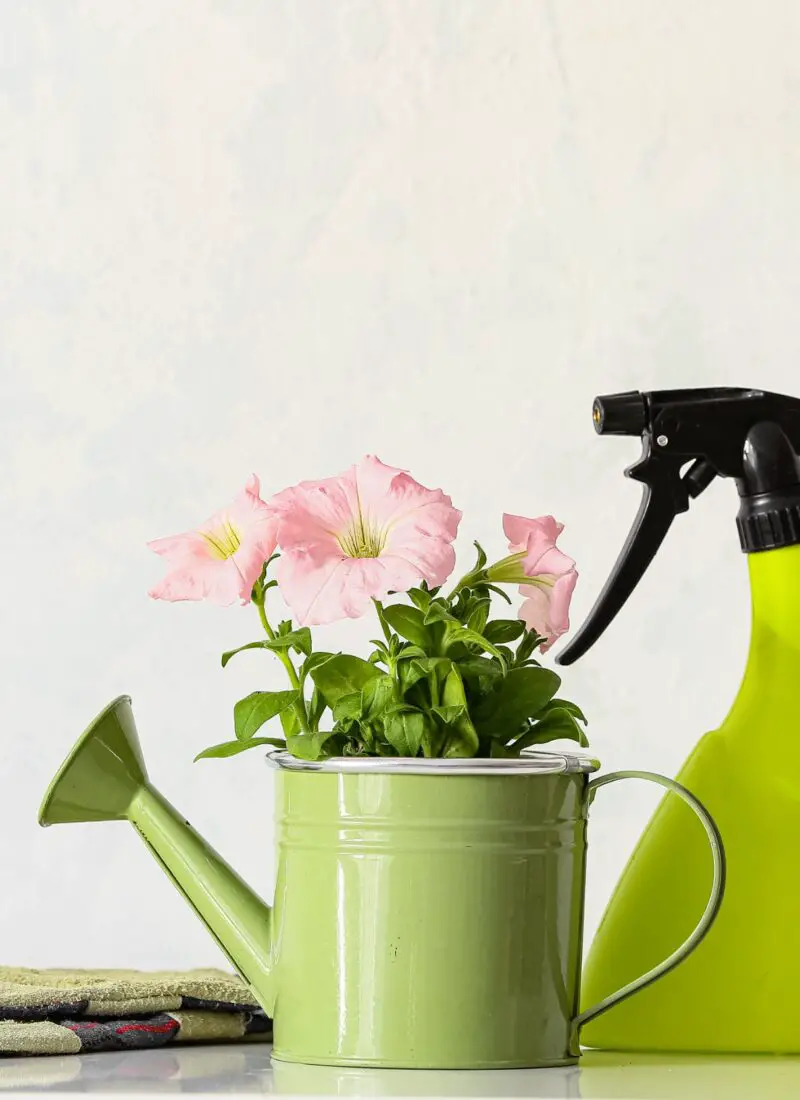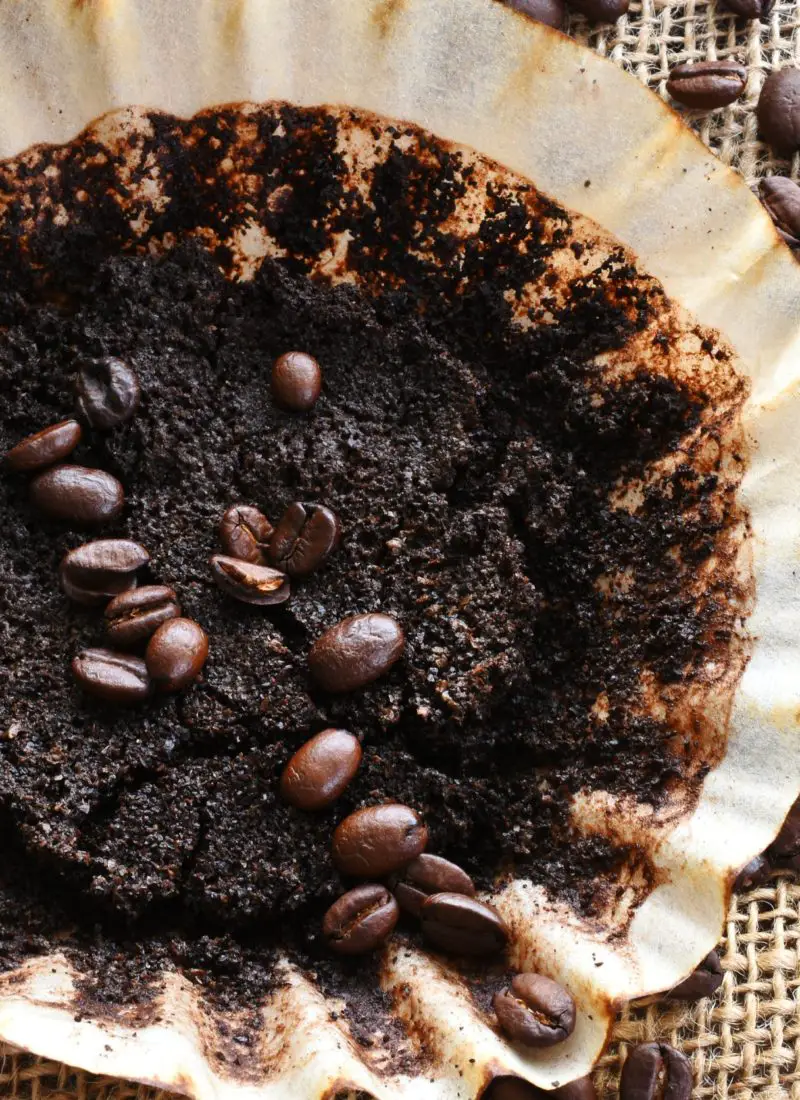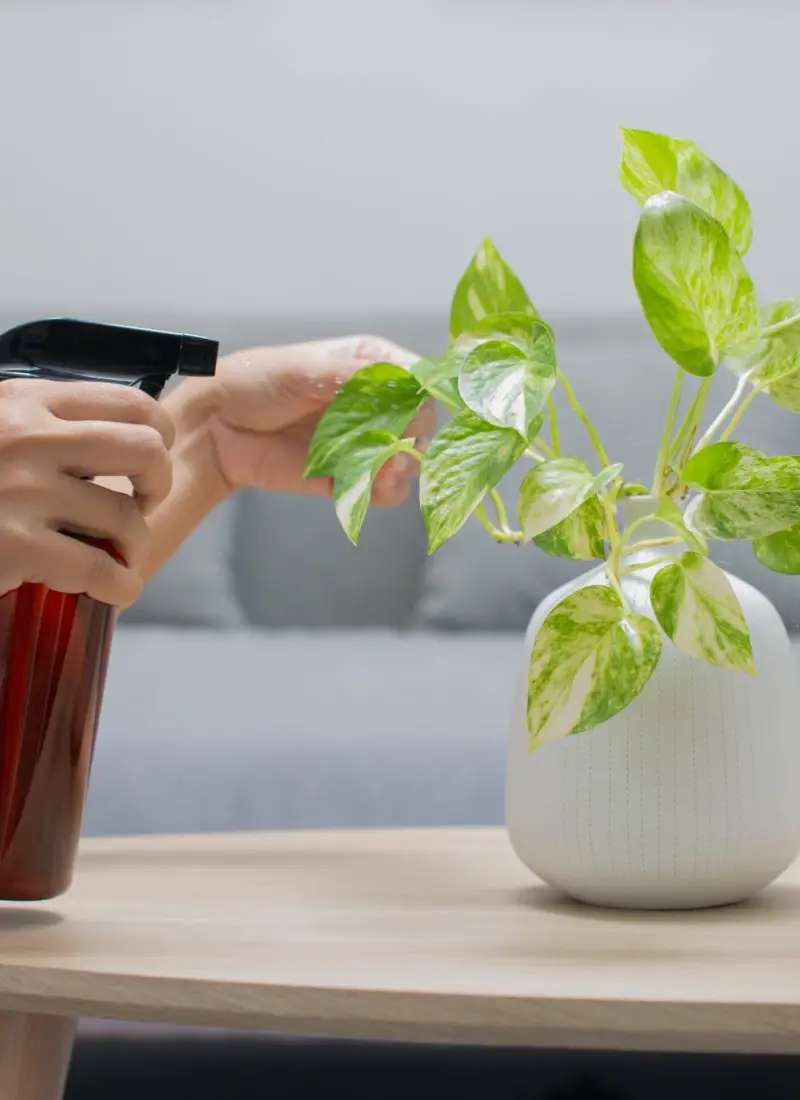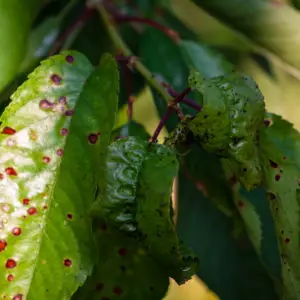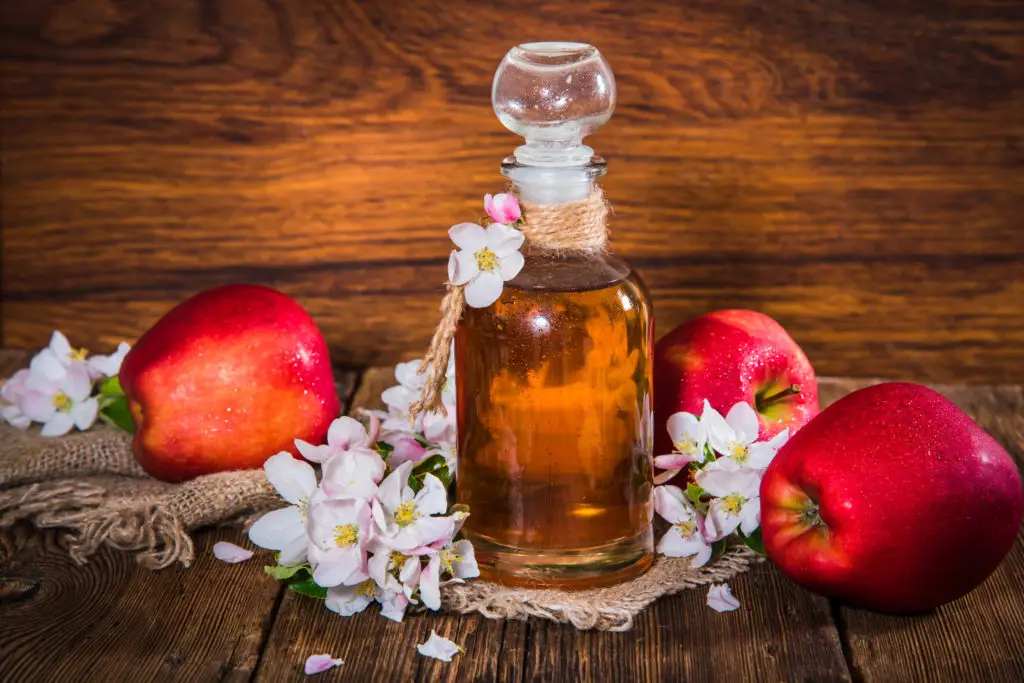
When you enter the gardening world, you’ll undoubtedly encounter unusual hacks that make you go, ‘hmm’ like compost tea (article link) or, in the case of this article, apple cider vinegar. There are many claims related to using apple cider vinegar on your plants for various beneficial reasons. But should you really apply it to your plants?
As a whole, do not spray pure apple cider vinegar on plants. The leaves will ‘burn’ upon contact because of the acidity. Claims of using even the diluted version as a fertilizer, pest-repellent, soil amendment, and disease control have no concrete scientific basis.
Below, I elaborate more on this popular gardening myth and its actual efficacy:
(As an Amazon Associate, I earn from qualifying purchases.)
Table of contents
What Happens When Apple Cider Vinegar Is Applied To Plants?
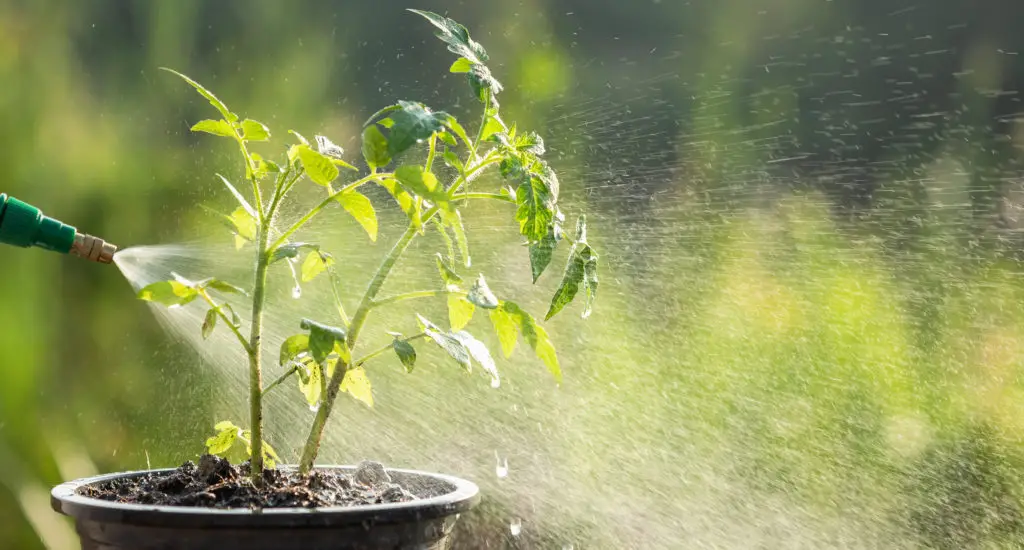
Any type of vinegar is essentially acetic acid. Its concentration varies according to its uses. For example, they commonly come as 5% concentrated in household vinegar such as white distilled and apple cider.
They can also be sold in 8% and 20% concentrations, the latter of which is quite dangerous to handle without protective covers. You might as well wear a hazmat suit to prevent any accidental spillage on yourself. I’m not even joking – your nose will go on a marathon run, and your eyes will burn.
But let’s go back to apple cider vinegar. Even though it is fermented apple juice, it’s still an acid. It causes an immediate reaction where it breaks down plant tissue, mainly foliage, upon contact. 5% concentration may not seem like much, but it’s enough to cause wilting and dying plants. Even if you dilute it, you still have the potential of damaging your plant.
In the best-case scenario, nothing happens. But just because there is no visible deterioration, it doesn’t mean nothing is happening under the foliage surface. You’re better off not using apple cider vinegar as a gardening remedy for your plants in the first place.
Is apple cider vinegar good for plant leaves’ growth?
Apple cider vinegar is not good for plants generally. The acidity will cause the cell membrane in the leaves to rapidly deteriorate, causing the plant to go limp and eventually die back. Use a damp cloth instead to wipe your dusty leaves down.
If you have sprayed apple cider vinegar on your plant you may be wondering whether it was the acid or something else that made the leaves turn brown. If you’d like to see some other possible causes, check out our article on brown spots on leaves and what pests and diseases could be causing them.
How Effective is Apple Cider Vinegar For Gardening?
There are several supposed gardening uses you can do with apple cider vinegar. But more often than not, there are very little to no benefits in doing so. Here are some claims and their realistic outcomes:
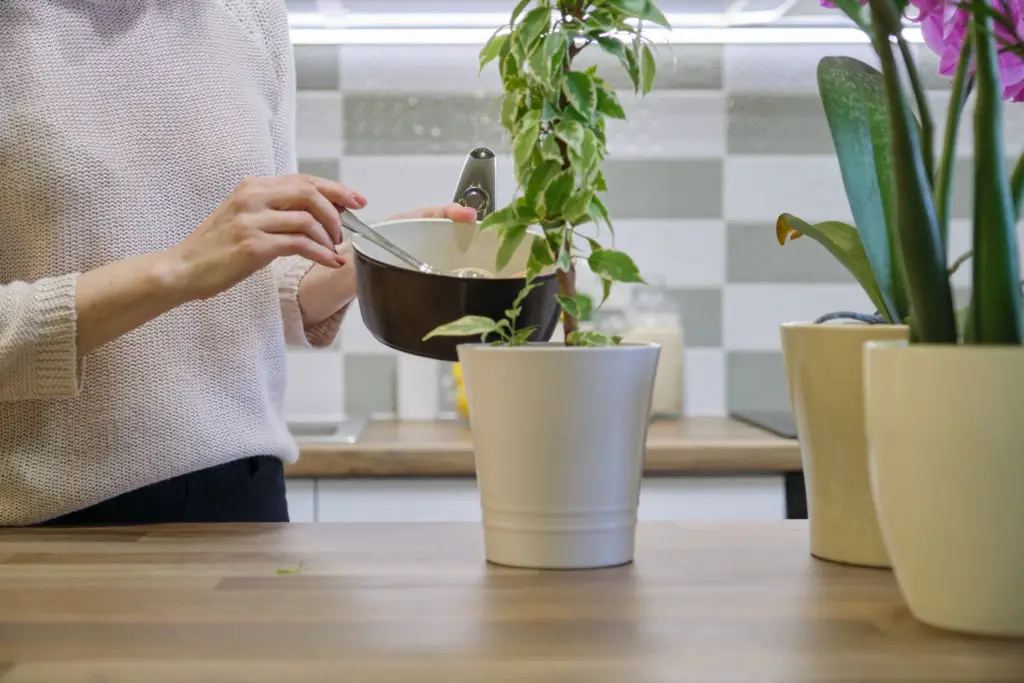
A. “Apple cider vinegar can be used as a fertilizer for plants.”
I’d like to preface this by saying no current scientific literature supports this claim. Filtered apple cider vinegar contains minimal nutritional benefits for plants. However, the raw version possessing a cloudy substance called the ‘mother’ may theoretically be somewhat beneficial. It essentially contains a by-product that has probiotics and other nutrients. But as I’ve said, there’s no proof of this being effective.
You can find some fertilizer recommendations and advice on soil in this small section of our article: The 4 Basic But Very Important Elements of Houseplant Care
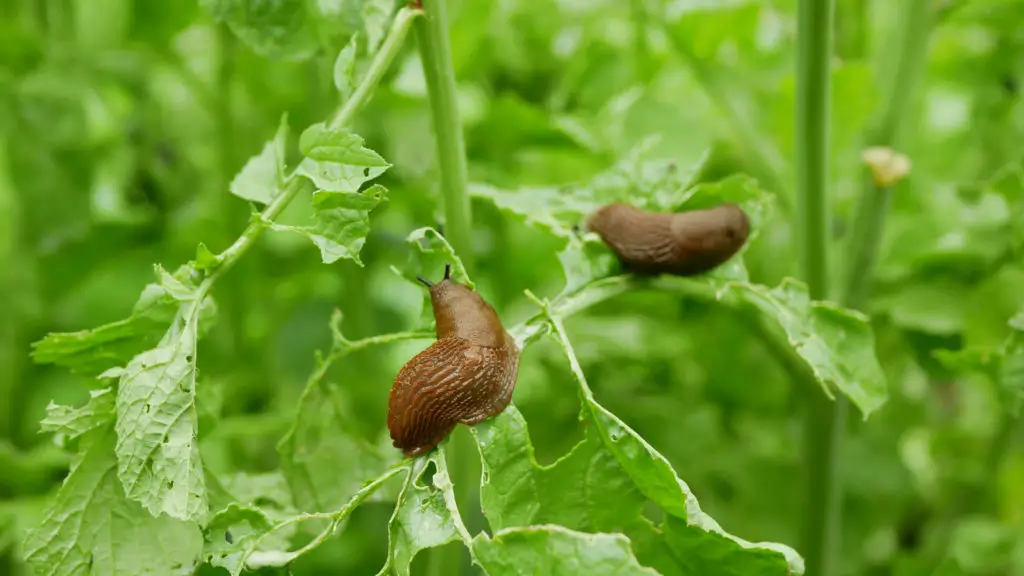
B. “Apple cider vinegar can be sprayed on plants to eliminate pests and keep pathogens at bay.”
In terms of pests such as ants and slugs, you can undoubtedly spray diluted apple cider vinegar to get rid of them. However, as we’ve covered earlier, applying it directly to your plants will damage the leaves. It’s best to aim around and away from your garden instead. However, if you have other pests lurking in your plants, you can find out how to remove them safely in our article: How to Rescue Plants from Common Houseplant Pests & Diseases
Can apple cider vinegar be used as a pesticide for plants?
Apple cider vinegar is an excellent organic pesticide on certain irritating insects such as aphids, ants, and slugs. However, ensure to spray directly onto the pests and away from your plants at all costs. The leaves will shrivel up and wilt upon contact. In worst-case scenarios, it will cause your plants to die eventually.
As for diseases, wet foliage increases the chance of pathogens latching on the plant. Not only that, wilting and decomposing leaves give a perfect feasting ground for fungi and bacteria to thrive on. If you suspect your plant is suffering from plant diseases, this article may be helpful for you.
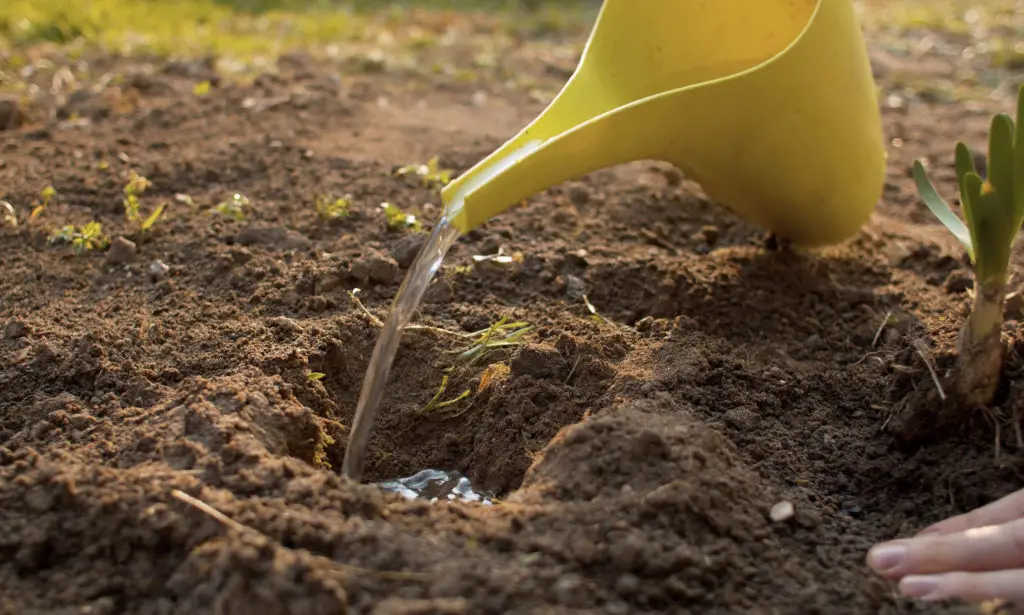
C. “Apple cider vinegar can be added to the ground to increase the soil’s pH.”
Honestly, this one is just plain ridiculous. As an acetic acid, it breaks down easily in the environment, which is a good thing. However, it also means that its effect on raising the soil’s pH is remarkably brief before changing back again once it dissipates. Additionally, you’ll have to be using large volumes of apple cider vinegar to even amend your soil. That’s just more trouble on the wallet than it’s worth. You can find better ways to amend your soil in this article.
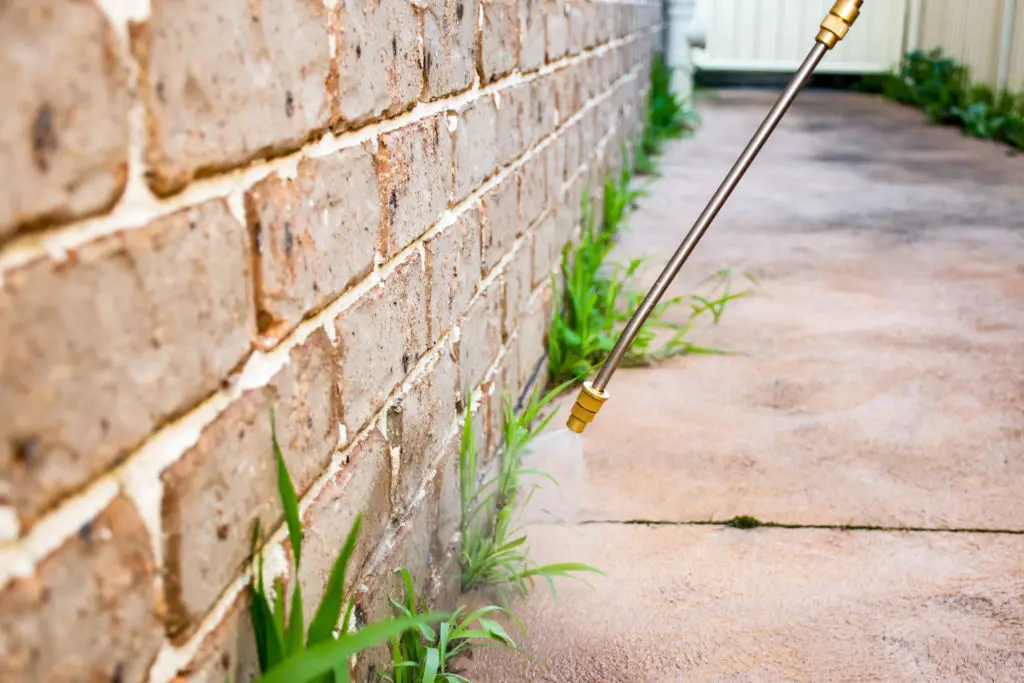
D. “Apple cider vinegar is a great organic and alternative herbicide.”
There is some truth to this, but it’s definitely not as stellar of a substitute to existing herbicides. Yes, apple cider vinegar, or any other household vinegar, will actively burn the top of young weeds but not mature or larger ones. Perhaps you may have better luck at using the concentrated 20% one, but as I said, it’s pretty potent to handle.
What’s more, this only impacts the surface of the weeds. The roots remain unaffected, which means they will continue to sprout up again and again. So you’ll have to constantly apply apple cider vinegar to keep those pesky weeds away. This leaves you spending more than you would with standard weed-killer products.
In short, apple cider vinegar is not an effective substance for gardening uses. It simply isn’t as helpful as some folks have made them out to be in the garden. It would have been a nice hack, but sadly, it is nothing but a myth.
Final Words
Apple cider vinegar is not a miracle gardening elixir, no matter how much people will tell you otherwise. But hey, at least it tastes good! So keep it in the kitchen where it belongs in salads and other delicious dishes. Happy planting!
References:
https://extension.umd.edu/resource/vinegar-alternative-glyphosate
https://extension.oregonstate.edu/ask-expert/featured/vinegar-really-good-killing-weeds
https://pueblo.extension.colostate.edu/natural-ways-to-eliminate-weeds/
https://gardenologist.org/lets-smash-some-gardening-myths/
https://gardenprofessors.com/vinegar-a-garden-miracle/
https://www.gardeningknowhow.com/garden-how-to/info/use-vinegar-in-gardens.htm


